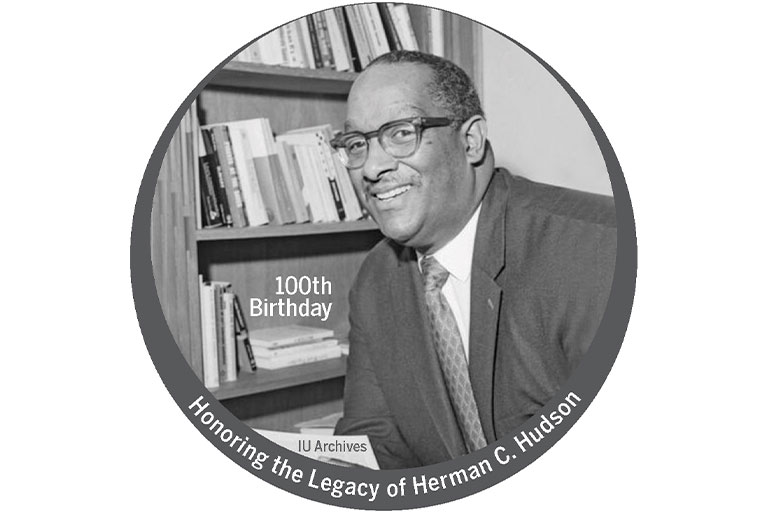Herman C. Hudson was a generous individual with great vision and influence. As one of the first African American leaders at Indiana University, few individuals have made a more powerful impact on the institution’s academic environment than Hudson.
Born on February 16, 1923, in Birmingham, Alabama, Hudson firmly believed in the transformative power of education. Hudson received his bachelor’s, master's, and doctoral degrees from the University of Michigan. In 1968, he arrived in Indiana after teaching at Florida A&M University, the University of Puerto Rico, and Kabul University in Afghanistan.
Hudson’s success was not easily achieved. He suffered from health issues, including meningitis, and was legally blind for most of his life. Yet, despite this disability, his commitment to dreaming bigger and doing more never wavered.
Only two years after the groundbreaking first program in Black Studies began at San Francisco State University, as vice chancellor for Afro-American Affairs, Hudson founded and chaired Indiana University’s Afro-American Studies department in 1970. The Office of Afro-American Affairs grew under his leadership as he served as vice chancellor and later as dean from 1970 until June of 1981 and from 1990 to 1993.
Because of Hudson’s vision for the Afro-American Studies department (now known as the Department of African American and African Diaspora Studies), it became a launching pad for creating other groundbreaking efforts to celebrate Black culture and develop Black talent through performance. This includes the creation of what is now known as the Neal-Marshall Black Culture Center and the African American Arts Institute, which houses the IU Soul Revue, the African American Dance Company, and the African American Choral Ensemble.
“Dr. Herman Hudson’s vision of a Black popular music ensemble course was unique, revolutionary, and bold back in 1971,” stated Charles Sykes, executive director of the African American Arts Institute. “Fifty years later, the IU Soul Revue is still unique, revolutionary, and bold.”
Mentoring was perhaps the one constant in Hudson’s life. For countless students, he became known as a teacher, friend, and father figure who encouraged them to stay focused on their goals despite the obstacles.
“As vice chancellor, Hudson assisted in recruiting Black faculty identified by schools and departments while they were advanced graduate students. His strategy was to identify, introduce the students to each other, and recruit them as cluster hires,” said Lillian Dunlap, Ph.D., former faculty member. “He also supported the research of young Black faculty, many of whom he recruited on behalf of various schools and departments.”
Hudson also served as one of the founders of the Hudson and Holland Scholars Program, a scholarship and support program for high-achieving students from communities historically excluded due to race and ethnicity. The program is the largest merit-based scholarship effort at Indiana University.
In addition, Hudson played a crucial role in helping to form the National Council of Black Studies. The organization was established in 1975 to formalize the study of the African World experience and expand and strengthen academic units and community programs devoted to this endeavor.
As part of its diversity, equity, and inclusion outreach, the Office of the Vice President for Diversity, Equity and Multicultural Affairs plans to highlight Hudson’s legacy of work in a series of events and activities beginning February 16, 2023, and ending with the close of the spring 2023 semester. The goal is to educate the Bloomington community and beyond about Hudson and his many accomplishments in creating spaces at Indiana University where Black culture and history can be explored and celebrated.
“It gives me great joy to pay tribute to an individual whose work has made such an impact on the IU community,” says James Wimbush, vice president for diversity, equity and multicultural affairs and Johnson Chair for Diversity and Leadership. “Educating the community and honoring Herman C. Hudson’s remarkable legacy is particularly fitting because of his lasting influence on generations of students.”


